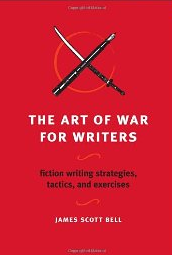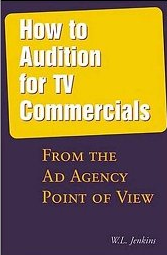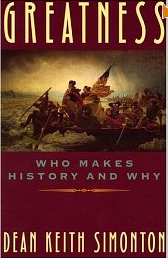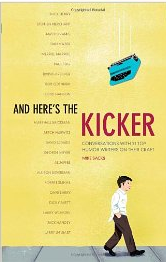 “I still read books on writing. My philosophy is if I find just one thing of value, even if it’s only a new take on something I already know, it’s worth it.” (2)
“I still read books on writing. My philosophy is if I find just one thing of value, even if it’s only a new take on something I already know, it’s worth it.” (2)
“Sun Tzu understood that it was the accumulation of small advantages that added up to long-term victory. You need to view your manuscripts the same way.” (4)
“In any enterprise, quality is job one. Quality is defined by two things: 1. Appeal of the workmanship 2. Absence of defects.” (5)
“David Ogilvy once put it, “In the modern world of business, it is useless to be a creative original unless you can also sell what you create.”” (9)
“Publishers want to publish novelists, writers who can build readerships and make money for the company over the long term. You need to position yourself as someone who can deliver the goods.” (10)
“The essentials of success for a long term writing career… desire, discipline, commitment to craft, patience, honesty, willingness to learn, business-like attitude, rhino skin, long-term view and talent. Talent is the least important. Everyone has some talent. It’s what you do with it that counts.” (11-13)
“A hero knows it takes hard work and a long time to get published; a fool thinks it should happen immediately, because he thinks he’s a hero already.” (16)
“A hero makes his luck; a fool cries about how unlucky he is.” (17)
“A hero recognizes the worth in others; a fool can’t believe others are worth more than he.” (17)
“A hero keeps writing, no matter what, knowing effort is its own reward; a fool eventually quits and complains that the world is unfair. Be a hero.” (17)
“It’s not the will to win that counts, but the will to prepare to win.” (18)
“Write a quota of words every week.” (18)
“Every moment spent whining about your writing career is a moment of creative energy lost.” (27)
“Status, worry, and comparison are ways to madness, not victory.” (33)
“To keep from turning off those who can publish you, you must not be desperate.” (37)
“Take one of your favorite writers, preferably one who has written a book in your genre, look in the mirror, and say, “Behold ____!” Then sit down and write.” (43)
“Playing an instrument, even badly, fires off neurons of creativity in the brain.” (44)
“Open a novel at random. Look at the first complete line on the left-hand page. Put that line in your book, and start a scene with it. After you’ve written the scene, cut the first line and substitute one of your own.” (44)
“The successful novelist will not worry about competition, but will concentrate only on the page ahead.” (47)
“Learn from the greats. Read and study those you admire. But never compare yourself to them. You are becoming the best you, not another them.” (48)
“Harlan Coben says, “if you’re not insecure about your writing, you’re either mailing in forgettable stuff or somebody else is writing for you.” (50)
“The next level holds those who write another novel, because the first one is probably going to be rejected. They do this, because they are novelists, not just someone who happened to write a novel.
Next are those who get published. Above that are those who are published multiple times.
At the very top is a Wheel of Fortune. This wheel goes around and lands on a book like Cold Mountain. Or The Shack. No one can control this.
Your job is to keep moving up the pyramid. Each level presents its own challenges, so concentrate on the ones right in front of you. As you move up, you’ll notice there are fewer people, not more. If you work hard, you might get a novel on the wheel, and that’s as far as you can get. After that, it’s not up to you anymore.” (52)
“Preston Sturges considered the possibility that all he had might be taken away and said, “When the last dime is gone, I’ll sit on the curb with a pencil and a ten-cent notebook, and start the whole thing all over again.” (54)
“The way to get a brilliant idea is to come up with lots of ides, then set aside the ones you don’t use. Set them aside, but don’t delete them. They may come in handy in another project entirely.” (57)
“Create your own stock of visual motivators. Put them where you write. Look at them when you don’t feel like writing, but know you must.” (59)
“I like to see a writer’s heart on the page.
Heart = passion + purpose.
Passion means heat. Strength of feeling.
Purpose means you know what you want the reader to feel when she gets to the end of your story.
Heart means direction passion so it serves your desired purpose.” (62)
“Finish your novel, because you learn more that way than any other.” (65)
“People may keep you from being a published author but no one can stop you from being a writer. All you have to do is write. And keep writing.” –Katherine Neville. (67)
“Melville can never be accused of writing mere fiction. He was going for it… There is too little time for anyone to be settling for mere fiction.” (69) [Or MERE jokes]
“A novelist takes the long view, the lofty view, and that does not include the price of eggs.” (70)
“Alfred Hitchcock’s axiom: “A good story is life, with the dull parts taken out.”” (72)
“Create characters readers will be drawn to and put them in desperate straits soon.” (72)
“Find ways to write without the infamous inner editor constantly shutting you down. Write hot, revise cool.” (76)
“When you write that first draft… write hard, write fast. Revise the previous day’s writing, then move ahead with what’s in front of you. That’s it. As fast as you comfortably can, until the first draft is done.” (77)
“A professional is someone who does his job, every day, even if he doesn’t feel like it.” (78)
“A pro is someone who writes, whether inspired or not, and keeps on writing.” (78)
“Publishers and agents invest in careers. They want ot know you can do this over and over again.” (78)
“Stephen King says he used to write 1,500 words a day, every day, except his birthday and the 4th of July.” (81)
“Writing “genius,” like any other kind, is 99 percent perspiration.” (81)
“Isaac Asimov, author/editor of seven hundred-plus books, was once asked what he would do if he knew he had only six months to live. “Type faster,” he said.” (83)
“Editors and agents are all looking for the “same thing” only “different.” That’s the elusive marketing angle that tells them: a) we can sell this because similar books have sold before; but b) there’s a freshness to it.” (86)
“Open up a new document and write for five minutes without stopping. Write a list of what can happen that’s worse, letting the thoughts come fast and furious. Don’t’ edit. Be as outrageous as you can be. Then stop, walk around for a couple of minutes, and come back and choose the idea you like best. Rewrite the scene now. Repeat the process for several other scenes.” (94-95)
“For your novel to blast off, your readers have to fall in love with your Lead character.” (96)
“First, figure out what the most positive characteristic of your Lead is… Now, list what battles against that characteristic… Next, create in your Lead’s background a reason for this struggle… Dramatize this, and you can well use the beat as a “reveal” in your novel.” (100)
“Remember, most inner struggle is not tied to the plot. It’s something the Lead brings to the plot from her past, and it is something she will carry with her throughout the story.” (101)
“A great premise will not stand without solid scenes to prop it up.” (107)
“Every scene should have that moment or exchange that is the focal point, the bull’s-eye, the thing you’re aiming at. If your scene doesn’t have a bull’s-eye, it should be cut or rewritten.” (113)
“Sometimes you’ll get stuck. When that happens, I use a pocket thesaurus. Say I’m writing about my character’s background. I need to know what her father did for a living. I pull out my thesaurus, open to a page at random, and take the first word my eyes fall upon. I read that word and all the synonyms. Invariably, I get a web of pictures and possibilities for whatever I’m looking for.” (114)
“People read to worry.” (119)
“People read because they want to have their emotions wrenched by the plight of a character to whom they feel emotionally connected. You do the connecting. You start connecting from paragraph one. If you want to sell your fiction, you must grab the emotions of the reader by putting a character in some kind of discomfort or danger or the possibility thereof. Immediately.” (120)
“The faster we worry about a character, the quicker the bond. And the greater our desire to turn the page.” (123)
“Editors tend to view dream openings with suspicion. I know some wildly successful writers have opened novels with a dream. After you sell eight gazillion copies, you can do it too.” (125)
“Give us the action first, then the setting information.” (127)
“Don’t wait too long to let the reader know why the scene is here, and why it is important.” (128)
“Saying “I love you” is manipulative and cliché. It’s a plea for sympathy. It’s flat. Instead, show your characters loving. Adding the words (or relying on them) actually dilutes the emotional content you’re going for.” (129)
“Characters all alone should do more than think.” (131)
“The Lead character should reach a point near the end where everything looks lost. This can be something outside or inside the character, or both.” (137)
“The Q Factor is something that is set up early in the story that will provide the necessary inspiration or instruction for the character when he needs it most.” (137)
“Backstory is what has happened before the present story begins, usually related to the Lead character’s history.” (142)
“Readers will happily wait a long time for the background if you have a character dealing with a disturbance. Using backstory judiciously is important because it helps bond the reader with the character. Backstory deepens that bond via emotion and sympathy.” (143)
“Go through your opening chapter and highlight every bit of backstory. Cut what can be delayed until later.” (149)
“John Howard Lawson said, “Dialogue must be viewed as a compression and extension of action.”” (152)
“Never have a character say anything that is unconnected to that character’s objective in a scene.” (152)
“Every character in every scene must have an objective, otherwise he shouldn’t be there. Replace him with a chair.” (152)
“Before you write a scene, review in your mind what each character wants at that moment in time.” (153)
“John Huston once remarked that the secret to a successful film was three great scenes, and no weak ones.” (160)
“Three scenes should be elevated relative to the rest. These scenes need to be packed with conflict, emotion, and surprise. All three. Conflict. Emotion. Surprise.” (161)
“A good comedy works when the characters in the comedy think they’re in a tragedy, but the audience knows they are not.” (163)
“You will be published, and compensated, to the degree a publisher sees you bringing value to their table.” (186)
“The market is set up to reward excellence. Although it is imperfect in this regard, you must become excellent to have a shot. You must constantly strive to be better.” (189)
“Decide, in advance, you will never quit. You are a writer. Not someone who wants to write a novel. A writer.” (195)
“If you can write each dya, do it, and meet a quota. Minimum 350 words a day. A baboon can do 350 words a day. Don’t be shown up by a baboon.” (199)
“Take a break, one day a week. I take one whole day off, and don’t write a word. It recharges my batteries, freshens me up for the next day. I find I’m more creative and more energetic.” (199)
“Isaac Asimov had several typewriters around his apartment, each with a different project sitting in it. He’d pick on and type for fifteen minutes.” (200)
“Michael Bishop says, “One may achieve remarkable writerly success while flunking all the major criteria for success as a human being. Try not to do that.” (201)
“A bad agent is worse than no agent.” (204)
“If you can’t take “no,” or if you can’t take criticism, or if you can’t take direction, go back to the dry-cleaning business. You obviously aren’t tough enough for the writing biz.” (205)
“Always ask a prospective agent who she represents, ask to talk with some of her authors, and ask what deals she has done lately.” (206)
“If you recognize a trend, it’s usually too late to jump on the bandwagon.” (216)
“The part of your proposal that is usually read first is page one of your sample chapters. Why? Because it saves time. If you can’t write, the reader doesn’t have to bother with the rest of the package.” (220)
“Unless you can generate a logline that has the ka-ching, you’re not ready to submit.” (223)
“Whether you write literary or commercial fiction, a potent logline is a must.” (223)
“Do not include a self published novel as a “credit” (it’s actually a debit).” (226)
“Don’t be dull and don’t be desperate.” (237)
“One reporter asks, “How did you happen to become a bullfighter?”
The matador replied, “I took up bullfighting because of the uncertainty of being a writer.” (239)
“A rejection says one of two things: Either a piece isn’t right for the publisher at that time, or it is not up to their standards. The first is something you can’t change; the second you can. You do it by learning to write better.” (240)
“Writing is a craft. People can learn how to write.” (240)
“I don’t measure a man’s success by how high he climbs but how high he bounces when he hits bottom.” – General George S. Patton (240)
“William Saroyan collected a pile of rejection slips thirty inches high – some seven thousand – before he sold his first short story.” (240)
“Regarding Animal Farm, George Orwell was told, “it is impossible to sell animal stories in the U.S.A.” (241)
{Regarding Social Networking] “Just remember, people aren’t into reading glorified ads. You have to offer them something of value in everything you put out there.” (245)
“For long-term success, design a typical writing day and stick to it.” (247)
“Never end the day at the end of a chapter.” (249)
“Mickey Spillane recalls how, “I’m at a tea party and this guy comes up to me and says ‘What a horrible commentary on the reading habits on Americans to think that you have seven of the top ten bestsellers of all time,’ and I looked at him and I said, ‘You’re lucky I don’t write three more books.’” (253)
“Writing itself is the only known antidote for bad reviews, dings, nasty e-mails, returns, and skeptical relatives.” (255)
“If you want to get anywhere, you have to be authentic. That not only means in your writing, but also in your dealings with other people.” (257)
“Write hard, write with passion, because that is what you do. Don’t waste any time dissing other writers or whining about how tough things are.” (258)
“You are responsible for your own self-discipline. No one can find the time for you, or write the words for you. You must be strict with your standards, too. Don’t settle for the easy, the familiar, the cliché. And at the same time, do not let your aspirations and actions lead to anxiety and distress.” (259)





